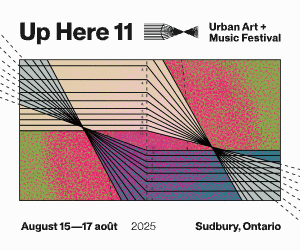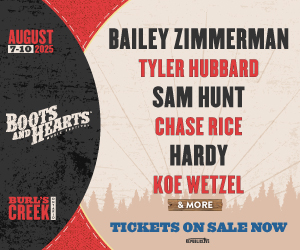Pinegrove’s Wish For Optimism Comes True on 11:11
The alt-country emo stalwarts talk climate change, connecting with nature, and inviting birds to guest on their new album.
By Luis Minvielle
Photo by Balarama Heller
- Published on
When Hall jumps into his interview with RANGE, he’s just as willing to let the conversation flow with no filters. Joining the call from his apartment in Woodstock, in upstate New York, Hall’s left arm sports a tattoo with the title of Pinegrove’s new album, 11:11 — make a wish! Hall’s fingernails are painted in shades of green, another reference to the album: 11:11’s artwork is a combination of green tones resembling a hedge maze as seen from above. According to Hall, it’s also an allusion to Mother Nature, for which he expresses deep concern. “I think the notion that there are humans and then there’s nature in two separate categories is artificial and harmful,” he says, with his usual pointedness. “It gives us a free pass for destroying this other thing that’s not us.”
The album touches on Pinegrove’s usual themes — relationships with a significant other, the conversations we have with ourselves — but it also doubles down on issues affecting whole communities, such as our care (or lack thereof) for nature and climate change, as well as the current political landscape. “Politics is less and less of a discrete category and more of something that just permeates your life,” Hall says in resignation. Yet, in line with Pinegrove’s good spirits, 11:11 is not a doomsday pamphlet warning about a planet fucked up beyond any repair. Instead, it’s a call to action — and a hopeful note about the possibility of fixing things up. “Optimism needs to be earned,” Hall says of the band’s positive outlook. “It needs to acknowledge the suffering and say, ‘There’s still a reason to keep on trying.’ And as far as the climate crisis is concerned, it’s not too late to still do something.” Hall is confident we still have time to change how we treat nature. “Just because you can’t do everything doesn’t mean you shouldn’t do anything,” he says. “We should be fighting. We should be organizing. We should be talking to one another and connecting about how it feels to be alive.”
Pinegrove formed in 2010 in Montclair, New Jersey, and consisting of Hall (guitars, vocals), Zack Levine (drums), Josh Marré (bass), Sam Skinner (guitars, synths), Nick Levine (guitars), and Half Waif’s Nandi Rose Plunkett (vocals, piano, synths), found its breakthrough with their 2016 studio album Cardinal. The record’s artwork — and its lyrics — refer to specific geometric shapes and symbols which have become associated as clear-cut allusions to the band. Pinegrove’s fans, known as Pinenuts, incur stick-and-poke tattoos of these symbols as a way to knit together. (The most famous Pinenut might be Kristen Stewart, who has admitted she has a Pinegrove tattoo). Hall has several of these symbols etched into his arms: his left arm has both a drawing of two square figures slightly overlapped — probably Pinegrove’s trademark figure — and a sturdy ampersand. His newly-etched 11:11 tattoo lies below both of these. Hall believes 11:11 can stand as a symbol to be interpreted in a variety of ways — for one, it could be a representation of people standing shoulder to shoulder, mirroring the band’s new community-focused mindset in polarized times. But 11:11 could also reference a row of trees, for example. The album’s opening track, “Habitat,” touches upon both worlds: the political present and our relationship with nature.


Clocking in at almost seven minutes, “Habitat” eschews indie rock’s typical simplicity and juggles between subtle room recordings and full-throated passages. It starts off sounding like a rough-edged live take of a proto-punk song, but it quickly hushes down into a folkloric track driven by a heartbeat. “‘Habitat’ was a B-side from the Cardinal sessions, so the bombastic indie rock section belongs to 2015,” says Hall. He didn’t give up on it though, updating the track with new lyrics reflecting what was on his mind at the time. “It’s now a very 2020 song,” he says. “It’s talking about frustration with government inaction and the history of racism in the United States. It’s a conversation surrounding monuments and what we’re supposed to do — we don’t want to whitewash our history of slavery, nor do we want to continue to keep these symbols of supremacy standing in the town square.”
As “Habitat” starts to wind down, a different melody emerges above the heart-beating percussion — and birds chirp into the band’s harmonies. “At first, we’d thought the song would end with the guitar loop,” says Hall. “But then I asked [bandmate] Sam Skinner, who co-produced the album with me, to add new bars, and then we started layering keyboards.” Hall explains that these are not “layered on top.” “We realized that birds were singing outside when we were recording because we had the windows open. It was a nice day. So we opened the doors to let all the sounds in! ‘Habitat’ is a pure collaboration with the birds,” he explains, thrilled.
The birds ended up on the record by chance, but Hall admits that many of 11:11’s subtleties are thanks to the addition of producer and former Death Cab For Cutie guitarist Chris Walla, who mixed the 11-track LP in just two weeks from his studio in Seattle. Walla helped add what Hall calls “little textural moments” into 11:11’s final mix. As a fan of DCFC, Hall was happy to land the auspicious collaboration: “Plans was the first CD I had as a licensed driver — I was playing it all the time.”
After the fact, the collaboration between Pinegrove and the former DCFC member seems meant to be. Both bands hail from towns under the radar of their state’s biggest cities. Both bands succeeded in the national indie rock scene by writing great songs with relatable college-dorm-era catchphrases like “I need you so much closer” or “I knew happiness when I saw it.” In turn, this honesty and unrequited longing also flung both bands out into the broad “emo” category. Hall does not dwell on this coincidence, but he states he’s open to further collaborations — as long as they have a socially impactful aspect. “I am so interested in collaborating with artists who want to raise awareness about issues such as climate change. We are public communicators, and we have the opportunity to talk about the emotional components of what’s happening,” he says. “I’m not a scientist, but I don’t think you need to be a scientist to have an opinion. I’m still learning what that role is and trying to calibrate it.” With 11:11, Hall and Pinegrove seem to have calibrated the right balance between drawing attention to a messed-up world while still embracing an optimistic mindset towards what we can accomplish together.
By Leslie Ken Chu
The rock stalwarts lean into vulnerability and nuance, proving that evolution doesn’t have to mean softening the blow.
By Cam Delisle
The pop veteran beamed into Rogers Arena Tuesday night with a glitchy arsenal of remixed hits—some faring better than others in her AI-styled end-of-the-world fantasia.













